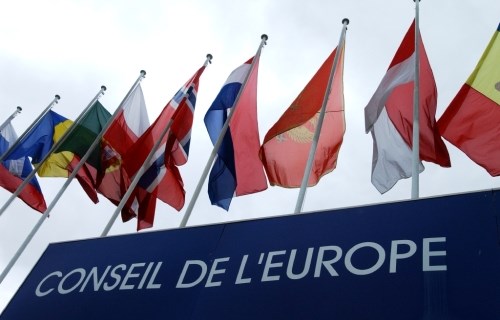European ministers sign convention on match-fixing
Sports ministers from Europe are gathered in the Swiss city of Magglingen today, where the Council of Europe is hosting a conference focusing on corruption in sports governance, match-fixing and other challenges to international sport.
Play the Game’s international director Jens Sejer Andersen was part of a panel about corruption in sports governance, where he presented alongside other experts on sports governance and ethics including Pâquerette Girard Zapelli, Secretary of the IOC Ethics Commission.
In his speech, Andersen praised the Council of Europe for their work in creating a common ground from where governments, the sports movement and other stakeholders can cooperate in the fight against match-fixing, while also underlining the need for a broader perspective in this fight and stressed that addressing corruption in sports organisations is a prerogative for the fight to succeed.
“In the sports business sector with its rapid and growing circulation of big money, association freedom can easily be perverted and turn sport into a greenhouse for tax evasions, bribes, abuse of labour and international organised crime. This is the lesson learned from studies of matchfixing, doping, trafficking and other threats to sport and society, and the lesson unmistakably points to the need for better governance in sport,” he said listing five proposals for the ministers to take into consideration in their future work on the governance of sport:
- protect tax-payers money by demanding sufficient standards of transparency and accountability
- maintain a public pressure on sports organisations and provide federations with tools to improve their governance
- establish a framework for dialogue between the international sports bodies and the governments about standards of governance and distribution of roles between civil society and public authorities
- organise a global conference on all forms of corruption in sport
- establish an international clearing house for integrity in sport
The conference will conclude by the signing of the Convention on the Manipulation of Sports Competition. The convention commits the signing states to raise their efforts in the fight against match-fixing in order to protect the integrity of sport and sports ethics in accordance with the principle of the autonomy of sport.
According to the convention, the states are committed to fight the manipulation of sports competitions by adopting a number of measures in the fields of prevention, criminal law and information sharing and cooperation between public authorities, sports organisations and betting operators, nationally as well as internationally.






